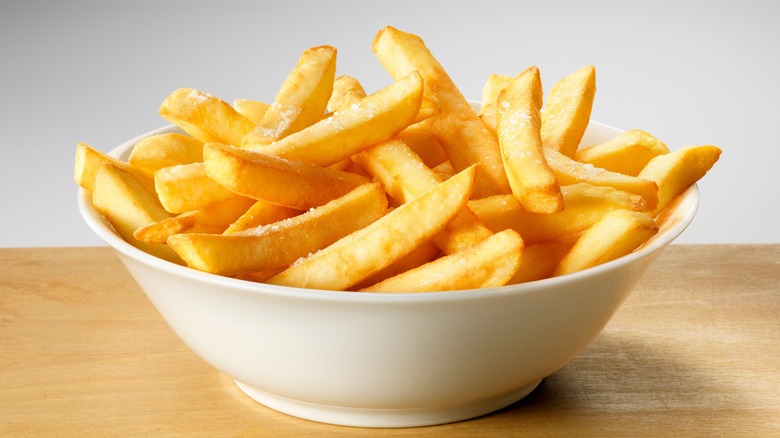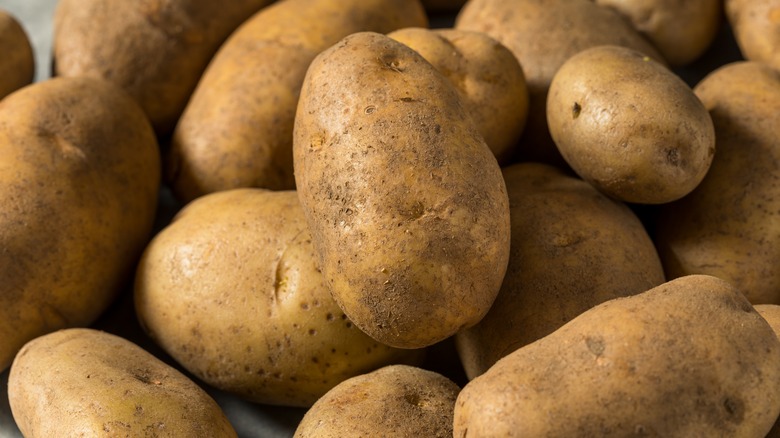What's The Best Type Of Potato For Making French Fries?
French fries are arguably one of the world's most beloved foods, crisp and lightly oily on the outside, fluffy and starchy on the inside. But as with any of the all-time greats, there's always that endless debate as how to make the best version possible. Since french fries essentially only need three core ingredients — potatoes, oil, and salt we wanted to know which potato the deep-frying experts turn to when they make their own version.
Thankfully, it's a potato we know and love — the russet potato. Peter Som, award-winning fashion designer, culinary creator, and lifestyle expert says that "Idaho or russet are dense with high starch content and low moisture. Yes, you'll soak the fries to release some of the starch, but the remaining starch will lead to a crispy exterior."
Bob Bennett, Executive Chef at Zingerman's Roadhouse, agrees and adds, "They size up really well and have a nice balance of sugar and starch." Russet potatoes make for great jacket potatoes (and baked ones), stellar twice-baked potatoes, and perfect mashed potatoes. Is there anything these spuds can't accomplish?
Why russet potatoes make the best french fries
Russet potatoes make an ideal potato for french fries due to their high starch content. Other examples of starchy potatoes include Yukon gold and Kennebec, both of which make beautiful fries too (especially Kennebec, from my experience). One of the other reasons why the russet is an ideal frying potato is because it contains relatively low moisture.
Som says to "Avoid any potatoes that are too waxy like new potatoes or red potatoes." That's because potatoes with waxy skin, like red potatoes, contain a larger percentage of water, which means they likely won't crisp properly when fried. Russet potatoes also have a relatively high density, which means you get a rich interior that ends up a lot like mashed potatoes when cooked correctly.
And speaking of cooking fries correctly — you may have read that the best fries are always double-fried, but it's important to know why. The first fry starts to drive away a lot of the potato pieces' moisture, and the second one allows the ideal crisp crust to set while pushing out the remainder of the water. That way, you get a crisp fry with a perfectly cooked, not-too-wet interior.
I realize that not everyone's going to want to cook their own fries from scratch. So if you want some recommendations for store-bought ones, we've got you covered with our frozen fry ranking too. But if you're in the mood to make your own, grab a few trusty russets and your fries will never be better.

